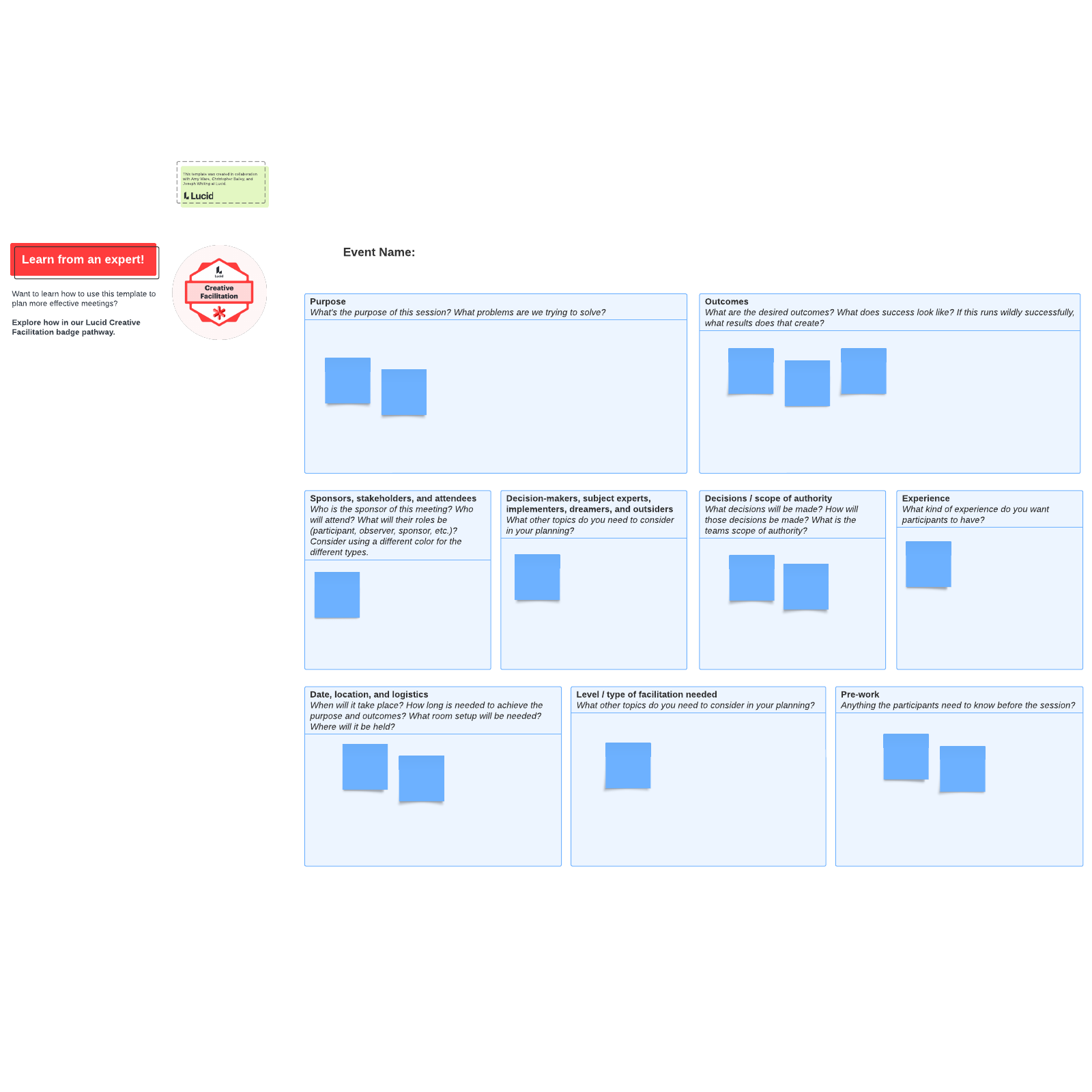Facilitation planning canvas
Plan your next facilitation session with goals, purpose, outcomes, and logistics in mind.
or continue with
By registering, you agree to our Terms of Service and you acknowledge that you have read and understand our Privacy Policy.

What is the facilitation planning canvas?
The difference between a productive meeting and an unproductive one comes down to an often overlooked element: planning. You might think "planning" in this context simply requires a standard agenda, but that isn’t enough to ensure a successful outcome. That’s where the facilitation planning canvas comes in. This canvas is a customizable template that will help you think through the various elements of your next facilitation session so you have a plan in mind.
What are the benefits of using the facilitation planning canvas?
There are several benefits to using this free template.
- Without knowing what you want the outcome of the meeting to be, you can’t lead the group. The template will guide you through pinpointing the real intent of the upcoming session.
- Ensure the logistics for the session are thought through to increase your chances of success. No need to start planning from scratch‚ just follow the template.
- From planning a product launch to planning a reorg, this template works in every conceivable scenario and is highly customizable based on your use case.
- This template is simple to learn. It’s intuitive with very little onboarding required.
- Remote team? No problem. Invite them to contribute with a click of a button.
- State the name of your upcoming event, then fill out the sections and consider the associated questions:
- Outcomes: What are the desired outcomes? What does success look like? If this is successful, what results would that create?
- Sponsors, stakeholders, and attendees: Who is the sponsor of this meeting? Who will attend? What will their roles be? Consider using a different color for their different types.
- Decision-makers, subject experts, implementers, dreamers, and outsiders: What other topics do you need to consider in your planning?
- Decisions/scope of authority: What decisions will be made? How will those decisions be made? What is the team’s scope of authority?
- Level/type of facilitation needed: What other topics do you need to consider in your planning?
- Pre-work: Anything the participants need to know before the session?
- Update the answers as needed and share them with stakeholders to keep everyone aligned on the meeting plan.
- Share! Send the link to stakeholders and anyone else who should have visibility into the event.
How to use the facilitation planning canvas in Lucidspark

Amy Ware, Christopher Bailey, & Joseph Whiting
Design Thinking Consultants, Lucid



